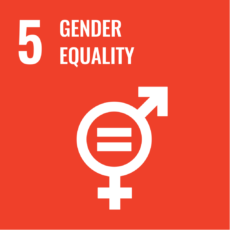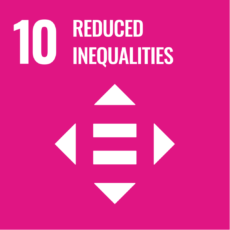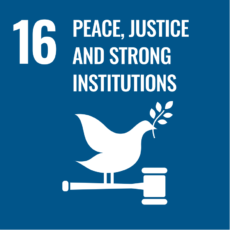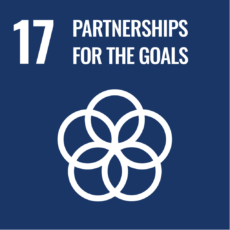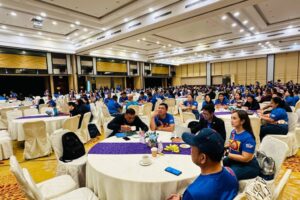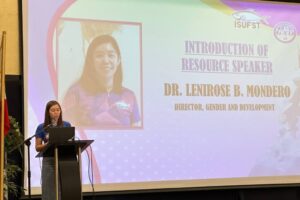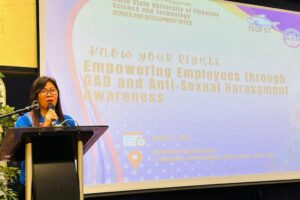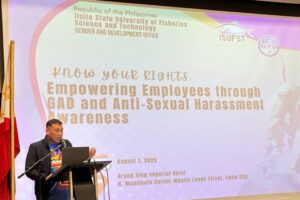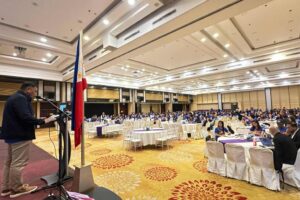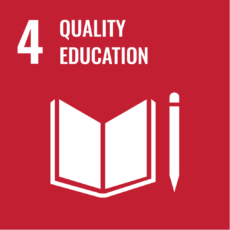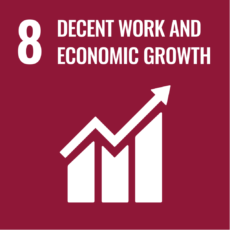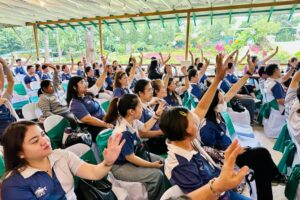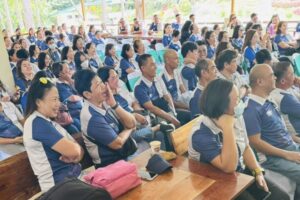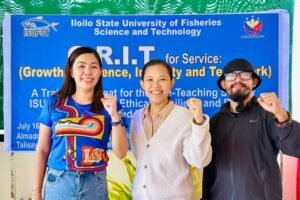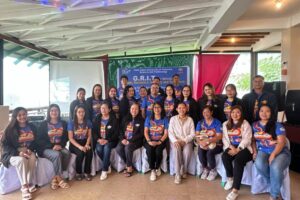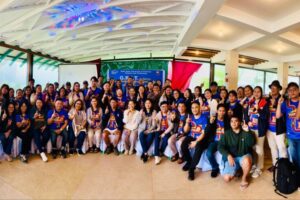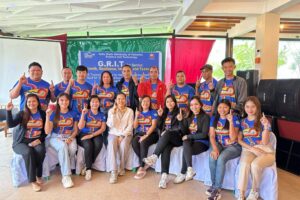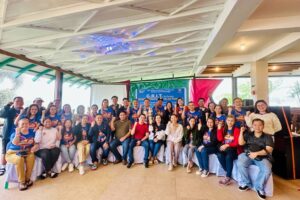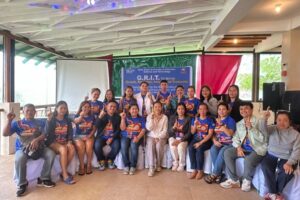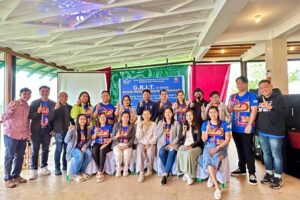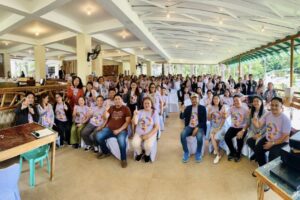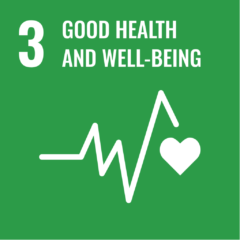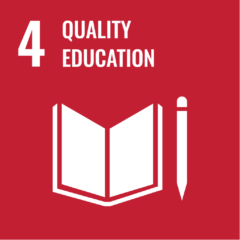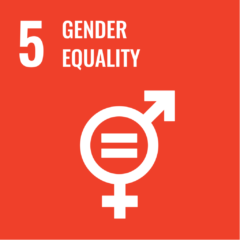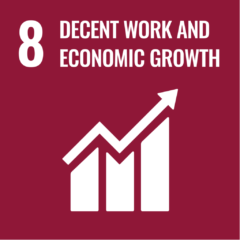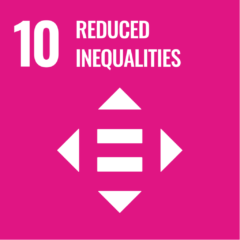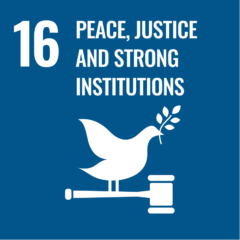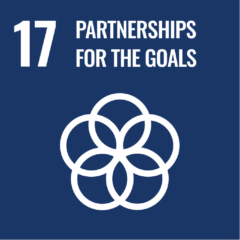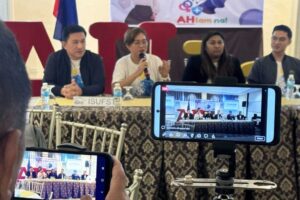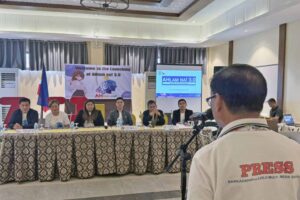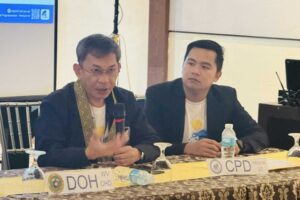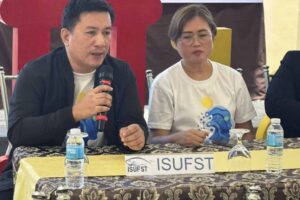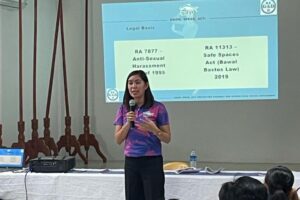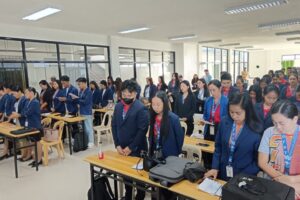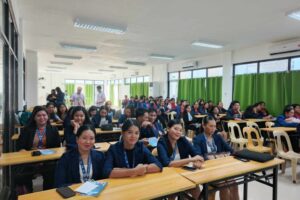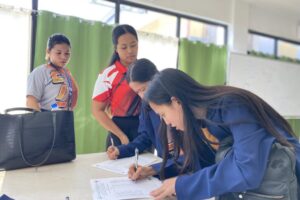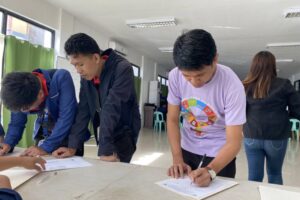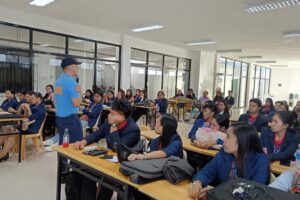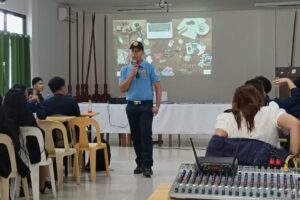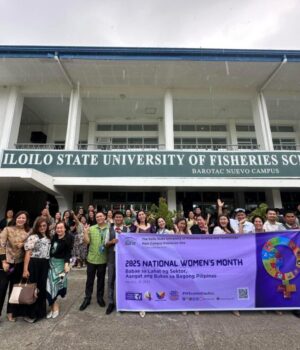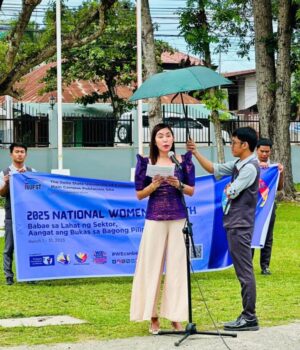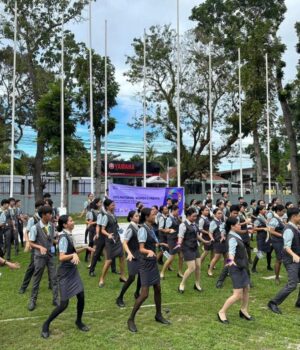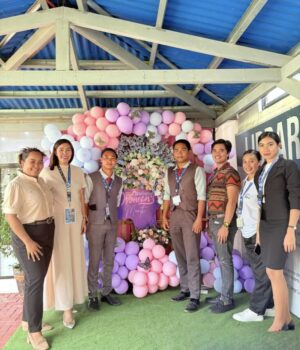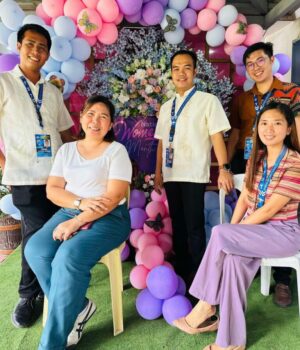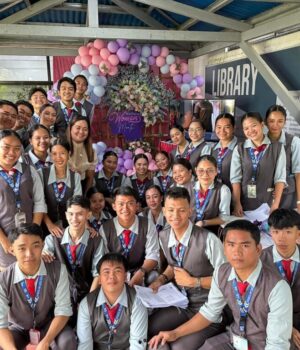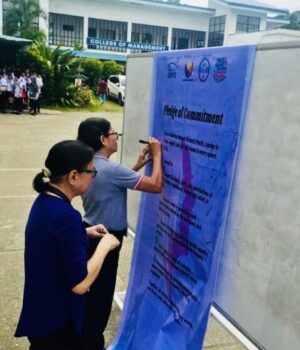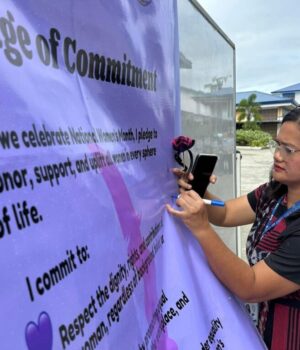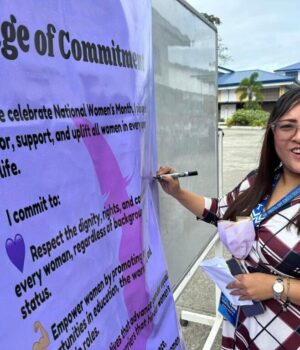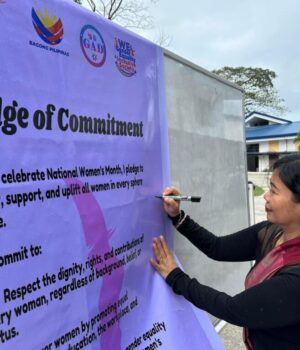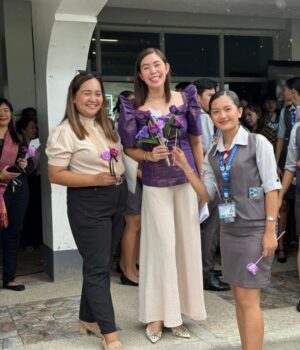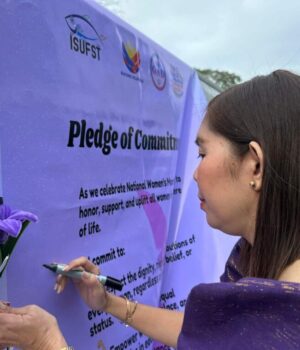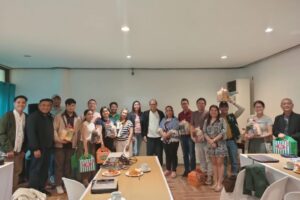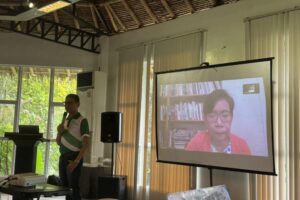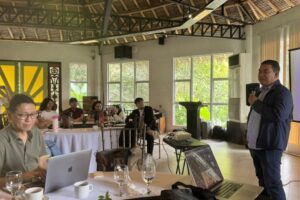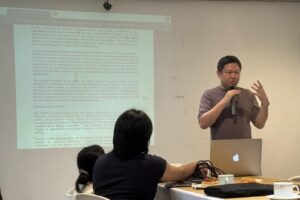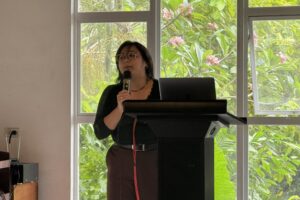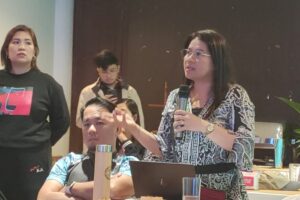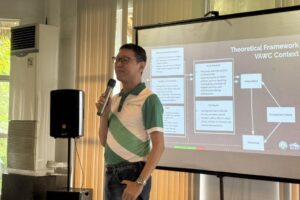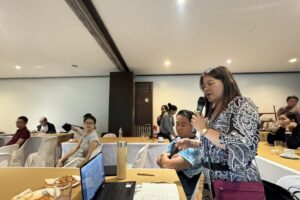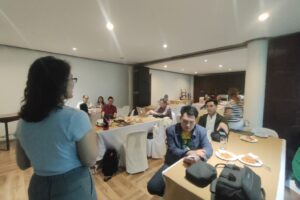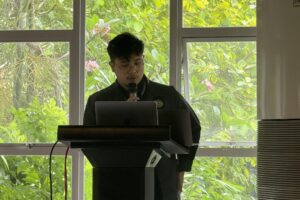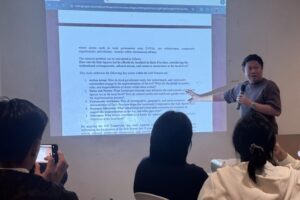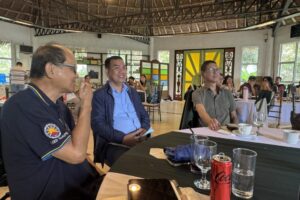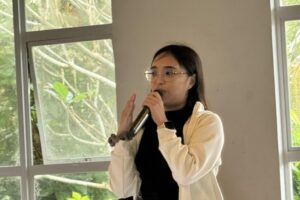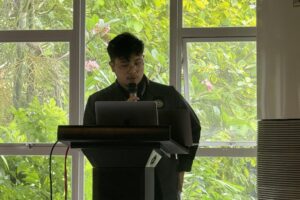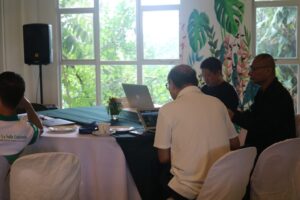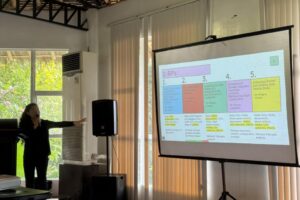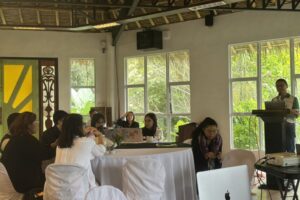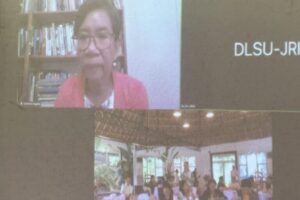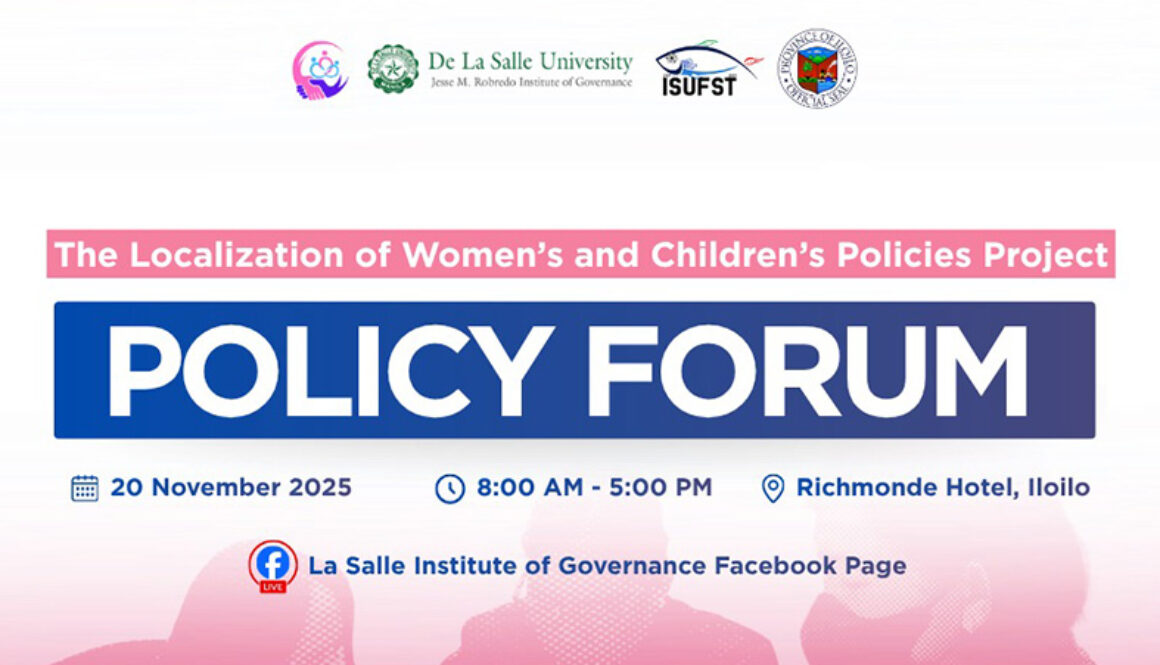
Gender and Development

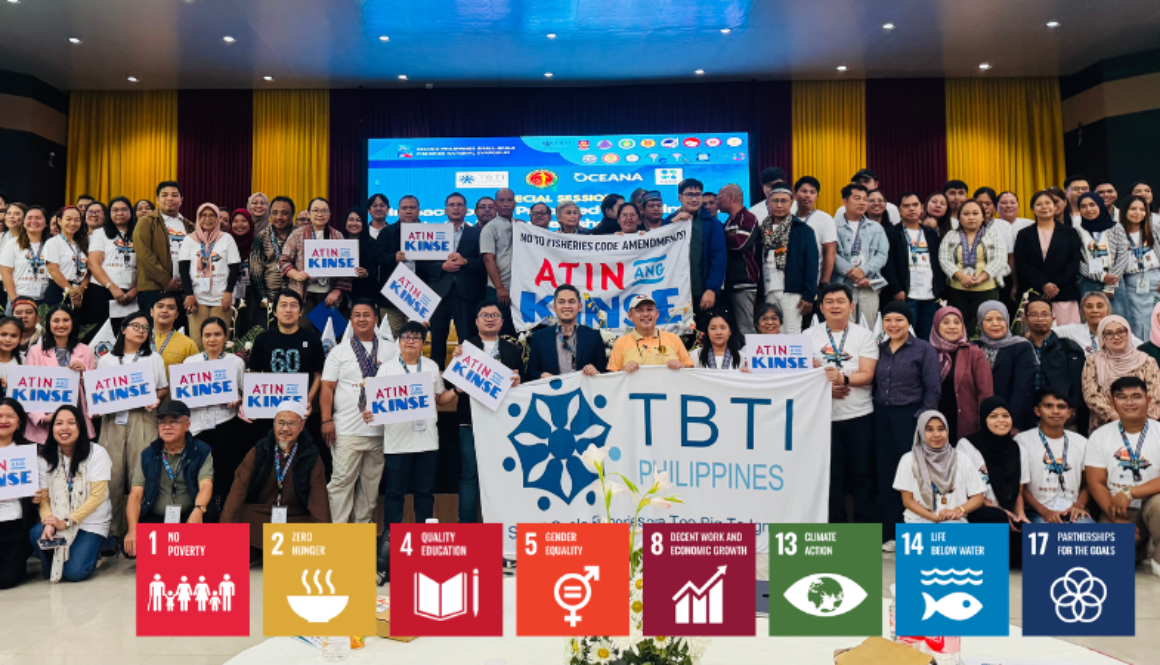
ISUFST Showcases 16 Scientific and Creative Works on Small-Scale Fisheries at National Symposium in Marawi

MARAWI CITY — As the Philippines pushes for stronger protection of its small-scale fishers through the “Atin ang Kinse Kilometro” bill, faculty and students from the Iloilo State University of Fisheries Science and Technology (ISUFST) joined hundreds of advocates in Mindanao to turn research into resolve.

Eight ISUFST delegates—seven faculty members and one fisheries student—presented 16 research and creative works at the Second Philippine Small-Scale Fisheries National Symposium (PSSFNS2) held on October 21–23, 2025, at the Mindanao State University (MSU)–Main Campus in Marawi City. The works, blending science, storytelling, and song, championed sustainability and inclusivity in the country’s small-scale fisheries (SSF) sector.

“Too Big To Ignore”
Gathering over 300 scientists, educators, artists, fishers, students, and policymakers, the three-day symposium carried the theme “From Recognition to Action.” Organized by MSU and Too Big To Ignore (TBTI) Philippines, it called for stronger and fairer policies to protect the country’s 15-kilometer municipal waters—the very heart of the “Atin ang Kinse” campaign, which fights for the rightful space of small fishers in their own seas.
“This consortium of universities, agencies, and communities aims to make small-scale fisheries visible, viable, and sustainable,” said Dr. Glen Lorenzo, MSU Vice President for Research and Extension. The gathering also tackled pressing issues such as climate change, overfishing, and illegal encroachment by commercial vessels—threats that the pending “Atin ang Kinse Kilometro Bill” (HB 5606) seeks to address.

ISUFST’s Contributions: Science, Art, and Advocacy
Representing ISUFST were Dr. Rolindo B. Demo-os Jr., Dr. Jescel B. Bito-onon, Prof. Rother M. Gaudiel, Dr. Quin Y. Clarito, Dr. Michael B. Dizon, Instructor Jezreel C. Donguila, Dr. Herman M. Lagon, and BS Fisheries student Melody Vaughn Ferrer.
Their diverse outputs—from fisheries research and photo essays to poetry and original songs—embodied ISUFST’s belief that science and culture can work together to heal and protect the seas.
Among the technical studies were “Catch Rates and Fishery Characterization of Filter Nets in Tinori-an River, Iloilo” by Bito-onon and Gaudiel, and “Fishing Smarter: Comparative Analysis of Fish Pot Designs Used by Small-Scale Fishers in Banate Bay” by Clarito.
Ferrer’s team, composed of CFAS students and faculty, presented “Pearl and Other Economically Valuable Oysters of Northern Iloilo: Morphometric Insights for Conservation and Fisheries.” The study highlighted the balance between livelihood and conservation—and won second place in the oral presentation category, besting entries from universities nationwide.
“These projects show how local innovation builds resilience in small-scale fisheries,” said Dr. Bito-onon, ISUFST Director for Research and Development. “It’s not just about data; it’s about empowering the communities that depend on our waters.”

Art Meets Advocacy
The symposium also celebrated creative works that bridged science and human experience. Dr. Herman M. Lagon’s poetry, short stories, and photography collections—“Between Net and Node,” “The Net That Holds,” “Where the Line Holds,” “Of Change,” “Lines of Salt and Hope,” “When Only the Bangkas Rest,” and “When Currents Meet the Roots”—captured the soul of coastal life: its struggles, rhythm, and hope.
Lagon, together with Instr. Jezreel C. Donguila, also presented two original advocacy songs, “Let the Line Hold” and “The Lines We Cast,” inspired by the Atin ang Kinse campaign. The songs, arranged with karaoke-style visuals and live footage edited by Patrick Lance Nacion using images from Dean Demo-os and Dr. Lagon, were performed by Donguila during the closing plenary and MOA signing ceremony—drawing resounding applause from the audience.
Beyond the symposium halls, the ISUFST delegation experienced Maranao hospitality. On the first night, delegates were treated to a Pagana Meranao dinner—an elaborate ceremonial feast where guests “eat like royalty.” Seated around a grand tabak (ornate tray), they shared flavorful dishes with their hands in true Maranao fashion.

The Marawi Manifesto and a Promise for the Future
The symposium concluded with the signing of the Marawi Manifesto, a collective pledge of support for the Atin ang Kinse movement and the Too Big To Ignore (TBTI) advocacy for inclusive, sustainable, and resilient fisheries. During the signing, Donguila’s live rendition of “Let the Line Hold” and “The Lines We Cast” filled the MSU gymnasium as photos of fisherfolk and coastal communities played onscreen—a moment described by many as “a hymn for the sea and the people who live by it.”
Participants also celebrated the acceptance of Batangas State University (BSU) as the next host of PSSFNS3 in 2026, marking the continued expansion of the TBTI network across the archipelago.
They capped the symposium with a visit to Marawi’s Ground Zero, where the scars of war stood as a solemn reminder that battles for survival come in many forms. Just as Marawi once fought for the right to life and peace, today’s Atin ang Kinse movement fights for the right of small fishers—and the seas they depend on—to live and thrive.

A Shared Mission
ISUFST President Dr. Nordy D. Siason Jr. commended the delegation for embodying the university’s vision of blending “science, culture, arts, and compassion in service of people and planet.” He emphasized that ISUFST’s efforts directly align with the United Nations Sustainable Development Goals, particularly SDG 14 (Life Below Water), SDG 2 (Zero Hunger), and SDG 13 (Climate Action).
For ISUFST, the symposium was more than an academic event—it was a reminder of purpose. “When we tell the stories of small fishers, artistically and scientifically,” said Lagon, “we’re also telling the story of our shared future.”

The PSSFNS2 came at a crucial time, as fisherfolk groups renewed calls for the passage of the “Atin ang Kinse Kilometro Bill” (HB 5606). The measure seeks to restore small fishers’ exclusive rights to municipal waters—rights recently challenged by a court ruling favoring commercial vessels.
From the shores of Banate to the lakes of Lanao, the message of PSSFNS2 was clear: small-scale fishers are too big to ignore. (PAMMCO)
#ISUFSTisdaFirst #ISUFSTCommunity #PAMMCOStoriesThatMatter #AtinAngKinse #PSSFNS2 #LifeBelowWater

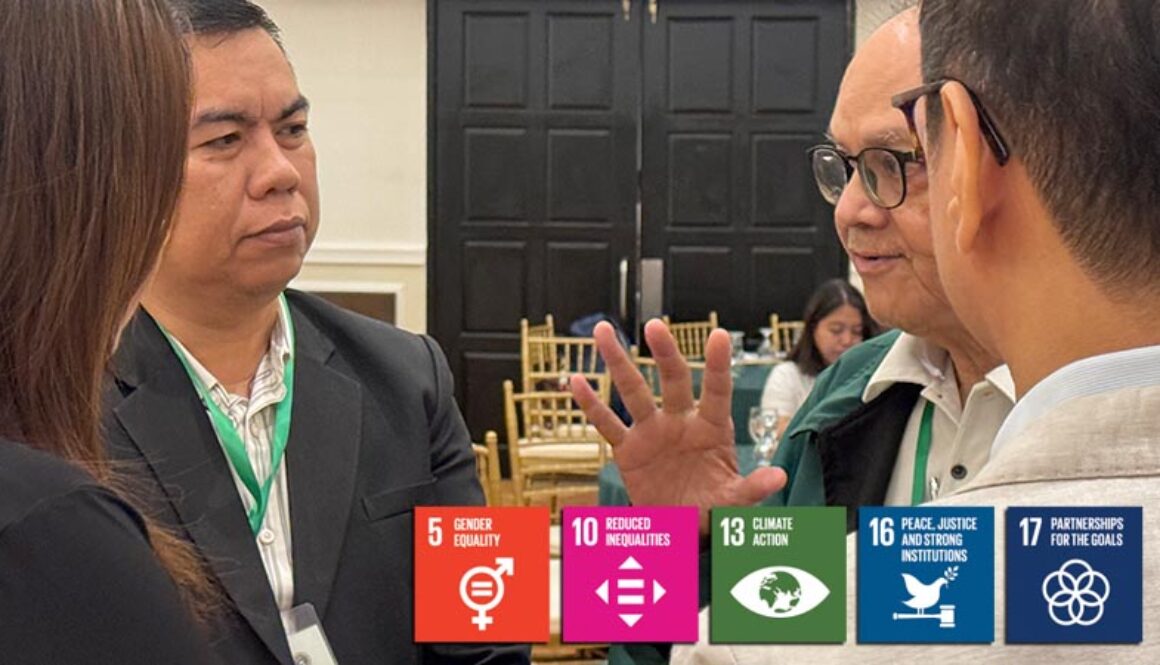
ISUFST’s Gender and Localization-Based Presentations Shines at ISSHCON 2025
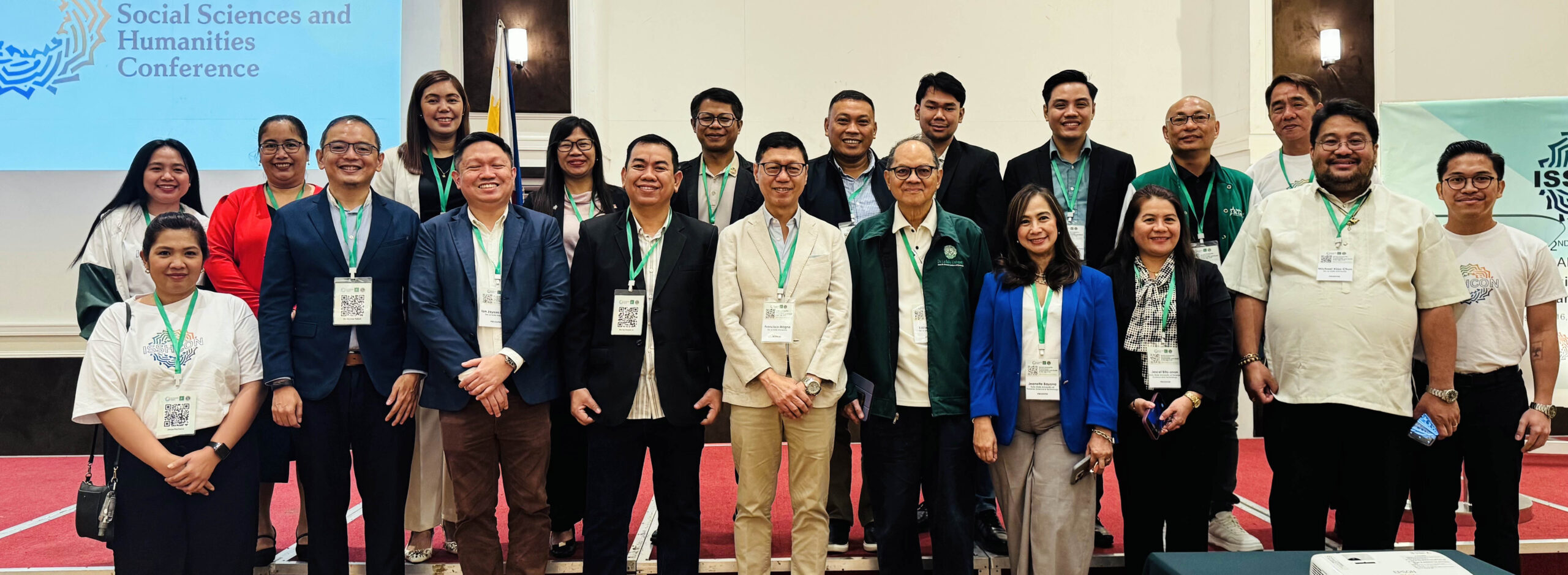
The Iloilo State University of Fisheries Science and Technology (ISUFST) made a comprehensive showing at the 2nd International Social Sciences and Humanities Conference (ISSHCON 2025) held on August 13–16 at the Metrocentre Hotel, according to Dr. Francisco Magno, Director of the De La Salle University (DLSU) Jesse M. Robredo Institute of Governance (JRIG).
Dr. Magno, who, together with ISUFST President Dr. Nordy Siason, Jr., spearheaded the collaborative project on the localization of women’s and children’s policies between DLSU and ISUFST, lauded the university’s strong research presence in the international conference, saying that the breadth of studies reflected both academic rigor and social relevance. The ISUFST presentations were based on co-authored papers with De La Salle University faculty and researchers.
This initiative is directly aligned with the United Nations Sustainable Development Goals (SDG) 16: Peace, Justice, and Strong Institutions, particularly the Times Higher Education SDG 16.3.3 metric on “Participation in government research.” The project has involved policy-focused research in collaboration with government departments, including the Senate Committee on Women, Children, Family Relations and Gender Equality, and the Iloilo Provincial Government. This grounding ensured that the conference presentations were not only academically rigorous but also policy-relevant, bridging scholarship and governance practice.

The ISUFST contingent presented 12 papers under the themes of gender, governance, sustainability, and higher education transformation, drawing positive attention from participants across the Philippines and abroad. This joint academic output demonstrates how universities foster SDG Impact through the SDG 17.2 metric of Times Higher Education on “Relationships to support the goals,” which emphasizes building international data-sharing platforms, promoting best practices, and facilitating cross-sectoral dialogue to advance the SDGs.
Among the featured gender-focused presentations were:

• Mr. Reil Jan Patosa’s research on women’s governance participation;
• Dr. Herman Lagon’s analysis on barangay health workers’ gender and mental wellness;
• Dr. Jescel Bito-onon’s presentation on women in coastal climate governance;
• Dr. Joana Paula Biñas’ findings on fighting violence against women;
• Dr. Jeanette Bayona’s work on women, culture, and sustainable tourism;
• Dr. Lenirose Mondero’s paper on localizing and diffusing national policies on women’s rights;
• Vice President for Administration and Finance Dr. Johnny Dolor’s study on gender and governance in waste management; and
• Vice President for Academic Affairs Dr. Joan Belga’s advocacy on advancing women’s reproductive health.
ISUFST also showcased its institutional journey through Dr. Bito-onon’s paper on university conversion through the extension lens, Dr. Edmer Bernardo’s study on equity for first-generation students, Dr. Bayona’s work on SDG-driven global engagement, and President Nordy Siason Jr.’s presentation on the university’s transition and development agenda.
Aside from presenting their own papers, Dr. Bayona and Dr. Lagon also served as moderators of two separate parallel sessions, further highlighting ISUFST’s active role in scholarly exchange. This aligns with SDG 17’s call for cross-sectoral dialogue by positioning ISUFST not just as a knowledge producer but also as a convener of research-based conversations that transcend institutional and national borders.

President Siason described the event as an opportunity to elevate ISUFST’s research voice in global policy conversations, through the partnership with De La Salle University, while staying rooted in local realities. “Our mission is to turn community-based challenges into research-driven solutions that can influence both national and international frameworks,” he said.
ISUFST’s delegation, composed of 11 faculty researchers in close partnership with DLSU, demonstrated how a growing state university could contribute meaningfully to evidence-based policy advocacy. Their work embodies the dual impact of SDG 16 and SDG 17: strengthening institutions through policy-engaged research collaborations, while also cultivating global academic partnerships that disseminate best practices and foster shared learning.
From gender-responsive governance to higher education equity, the presentations echoed ISUFST’s evolving identity as a research-driven institution. As Dr. Magno emphasized, the performance was not only academically sound but socially vital — a testament to ISUFST’s commitment to shaping sustainable and inclusive futures while advancing the global SDG agenda through strategic partnerships and policy-focused research. (PAMMCO)
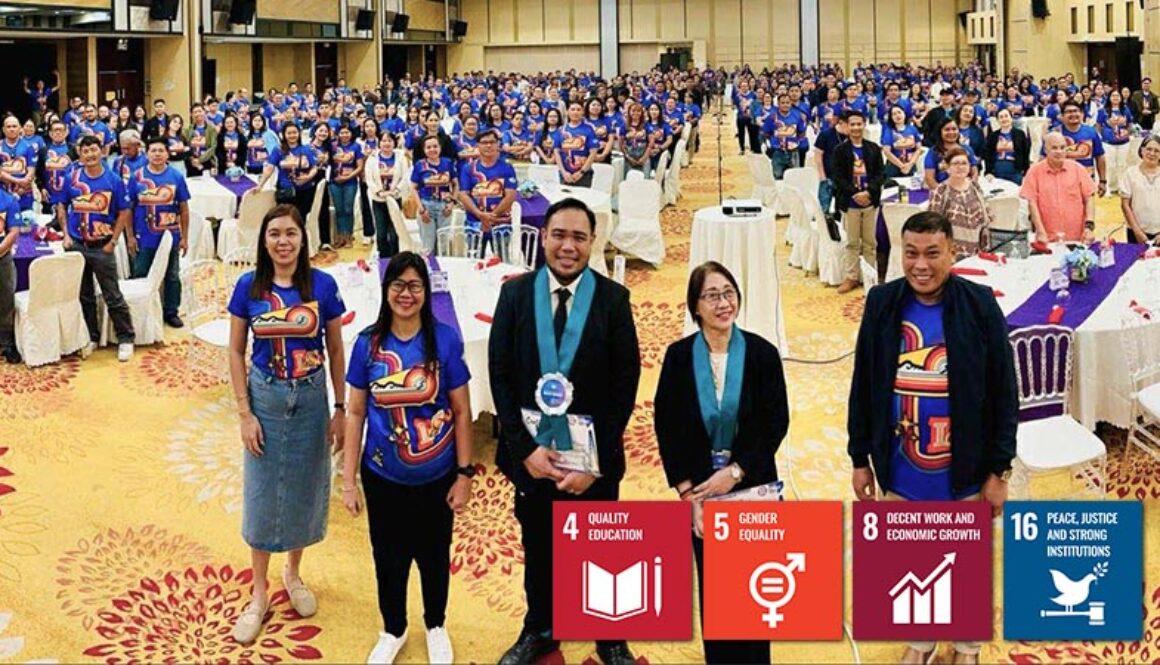
ISUFST Hosts Gender and Anti-Sexual Harassment Awareness Conversations





ISUFST Empowers Non-Teaching Staff Through G.R.I.T. for Service Training-Retreat

The Iloilo State University of Fisheries Science and Technology (ISUFST) successfully concluded its three-day training and reorientation program titled “GRIT for Service 2025: A Training-Retreat Toward an Ethical, Resilient, and People-Centered Work Culture” held July 16-18, 2025. at Almadria Highland Resort in Talisay City, Negros Occidental. The retreat gathered 237 non-teaching staff, directors, faculty with administrative functions, and top administrators from ISUFST’s five campuses for a shared moment of pause—to reflect, realign, and renew their commitment to public service.
Organized by the Human Resource Management Office with the GAD Office, the training-retreat became more than just a professional reset. At the values-laden integration workshop, ISUFST faculty and staff explored how the university’s vision, mission, mandate, and guiding principles could be lived out through daily care and service. The sessions were framed around SDG 4 (Quality Education), SDG 5 (Gender Equality), SDG 8 (Decent Work), and SDG 16 (Strong Institutions), helping participants anchor their actions in the GRIT values—Growth, Resilience, Integrity, and Teamwork—that define the university.

“This retreat reflects what ISUFST truly stands for,” said University President Dr. Nordy Siason, Jr. “We don’t just aim to deliver quality service—we build a community that serves with humility, passion, integrity, and purpose. And our non-teaching staff are at the heart of that mission.”

Day 1 began with an inspiring talk from Fr. Joel Rojo-Eslabra, chaplain of WVSU Medical Center, who invited participants to reconnect with their “why” through ikigai, the Japanese concept of purpose. “Service begins when we rediscover our reason for showing up each day,” he said. His talk continued after lunch, blending stories, clips, and quiet moments that invited participants to look inward. Fr. Eslabra reminded everyone that true service begins not with titles, but with the simple decision to care, to listen, and to lead with heart.

By mid-afternoon, energy and laughter filled the room as Mr. Al Ian Barcelona, CEO-President of AIB Training and Consultancy Corporation, challenged the group to reframe their roles with joy and passion during his WAVE session: Works Acceleration and Value Empowerment. Later that evening, new staff members introduced themselves to the wider community through lively talent presentations—an icebreaker that quickly turned into a celebration of shared joy, creativity, and campus pride.
Mr. Barcelona continued his session in Day 2, weaving in themes of personal passion, institutional alignment, and values-driven performance.

Also on that same day, July 17, Dr. Kharlie Joehn Hautea, the university physician, emphasized the importance of health, wellness, and safety in the workplace, reminding staff that good service begins with well-being.

Later in the day, ISUFST Legal Officer Atty. Joey Mondero revisited Republic Act No. 6713, the Code of Conduct and Ethical Standards for Public Officials and Employees. His session, and the engaging Q&A thereafter, reinforced that integrity, transparency, and accountability are not just legal mandates—they are daily practices that sustain public trust.
The second night brought moments of joy and unity during the Search for Mr. and Miss Non-Teaching Staff 2025. Mary Floren Arguez and Eli Gene Tisuela, both from the Tiwi Campus, were crowned titleholders. The event, though lighthearted, echoed the retreat’s spirit of confidence, inclusivity, and campus pride. Participants described it as “a celebration of the quiet strength behind every desk and department.”

The final day, July 18, featured CHMSU’s Director of Student Affairs and Services, Dr. Ma. Victoria Violanda, who ended the training retreat on a powerful note about working with purpose. She talked about the courage it takes to stay committed, the strength in collaboration, and the wisdom in being a lifelong learner.
Meanwhile, program lead Supervising Administrative Officer (SAO) Alma P. Betito also noted that: “For us, this retreat is a heart-check, it is a reminder of why we do what we do.” She added: “Our non-teaching staff are vital to the university’s heartbeat. Empowering them means enriching our entire system of service.”
Dr. Lenirose Mondero, GAD Director, affirmed the deeper purpose behind the activity: “When we build an inclusive, reflective workplace, we don’t just boost morale—we strengthen the very foundation of the service we give to students and communities. It’s about making each person feel seen, valued, and driven by purpose.”
With its blend of knowledge sessions, honest reflections, and shared celebrations, GRIT for Service 2025 reaffirms ISUFST’s mission to nurture kind, ethical, and resilient public servants. It also supports the university’s goal to align human resource development with institutional performance and to recognize excellence through the PRAISE incentive system.
As the country’s first and only state university dedicated to fisheries science and technology, ISUFST continues to lead with heart—cultivating a workplace where compassion, purpose, and public service grow hand in hand. (Herman Lagon / Ricky Ramos / Edeline Joy Brito / PAMMCO)
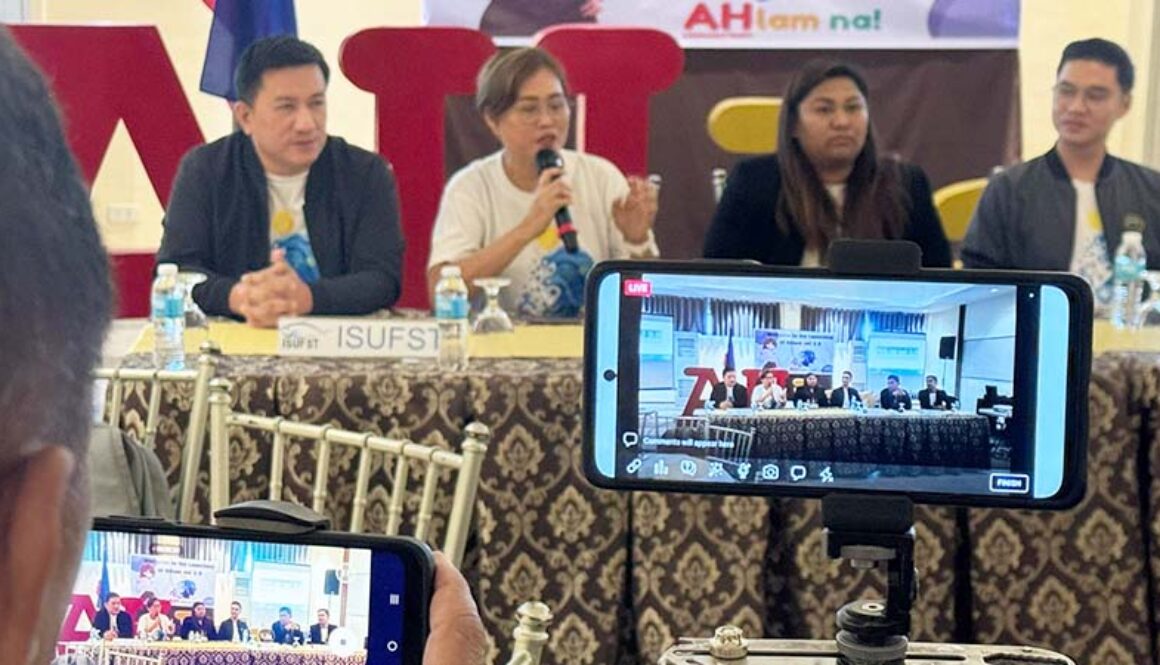
CPD, DOH, ISUFST Launch AHlam Na! 3.0 to Boost Adolescent Health Literacy

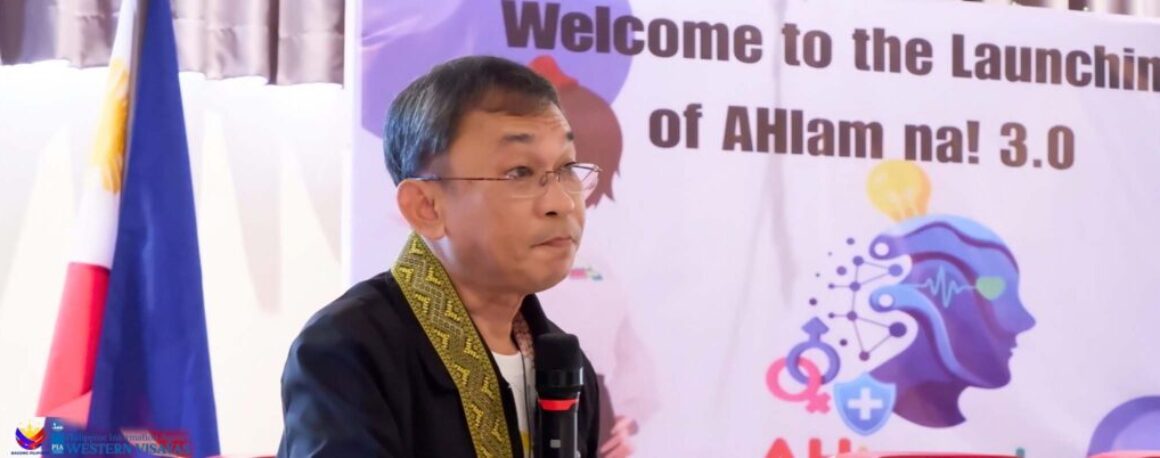

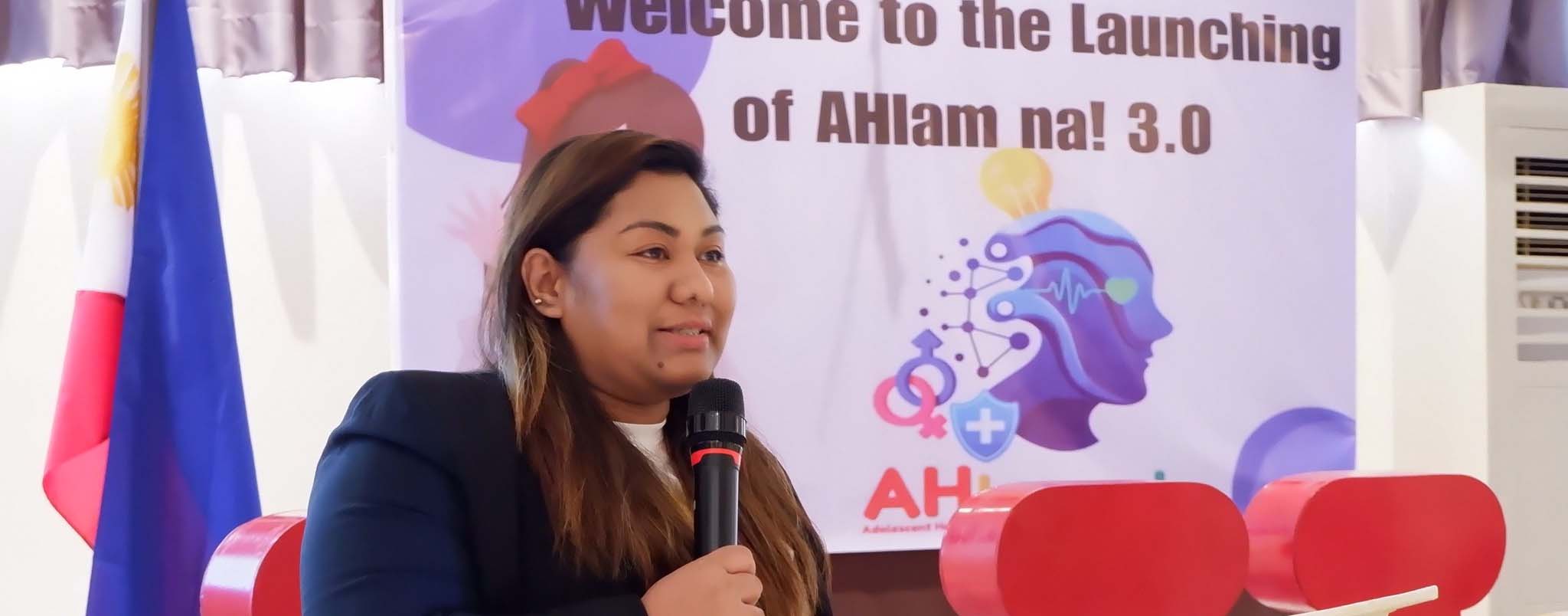
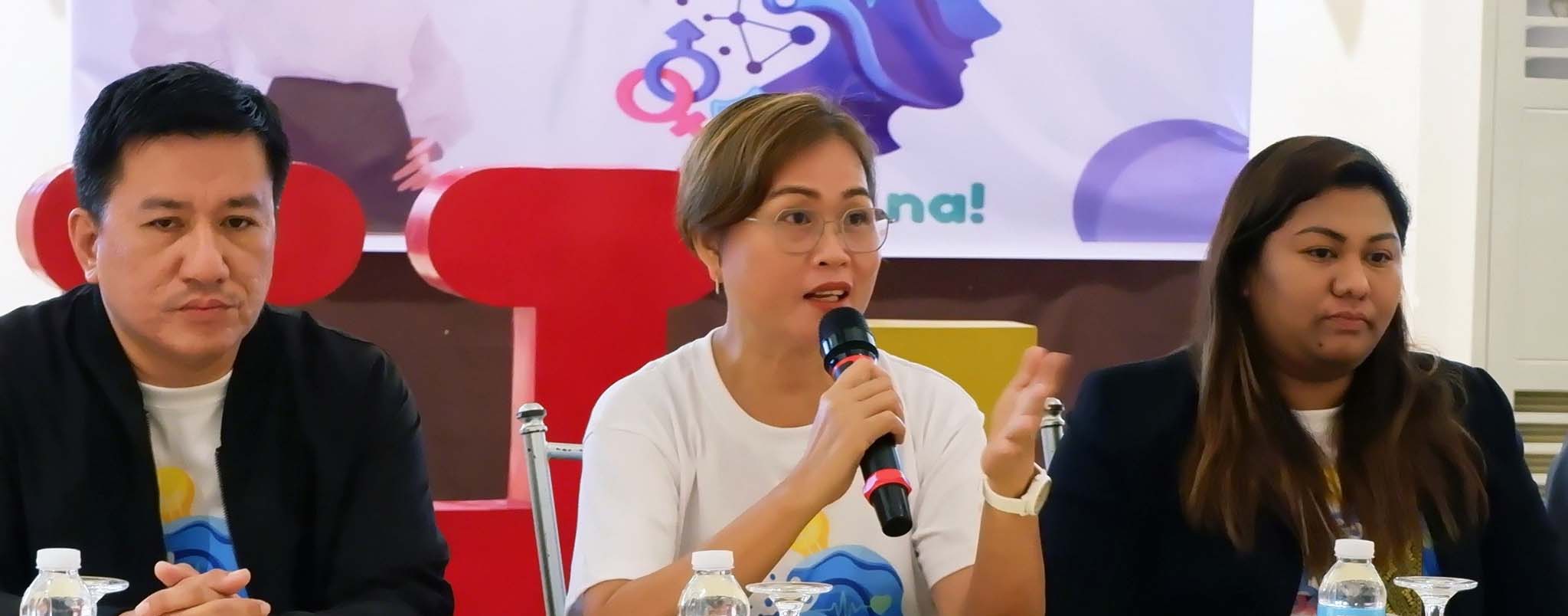
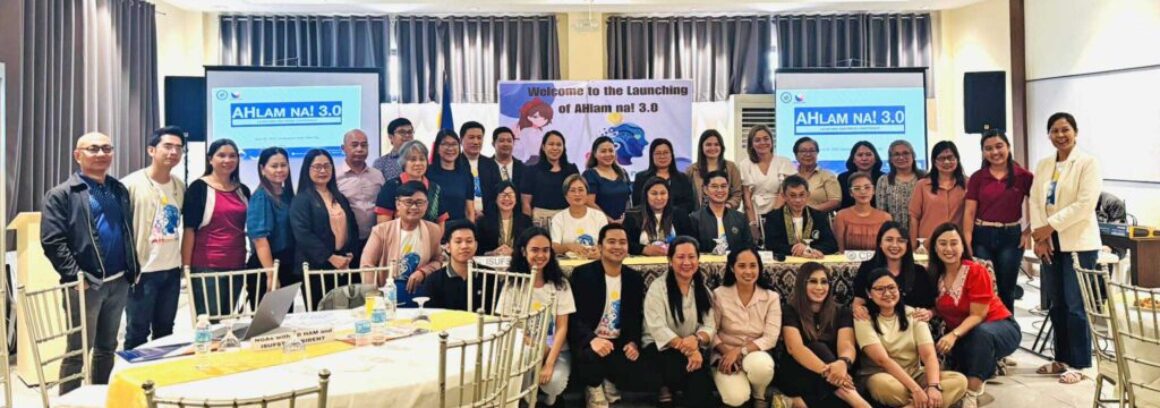

IT Seminar on Cybersecurity and Gender Equality: Breaking Barriers, Empowering Communities, and Securing the Digital Future
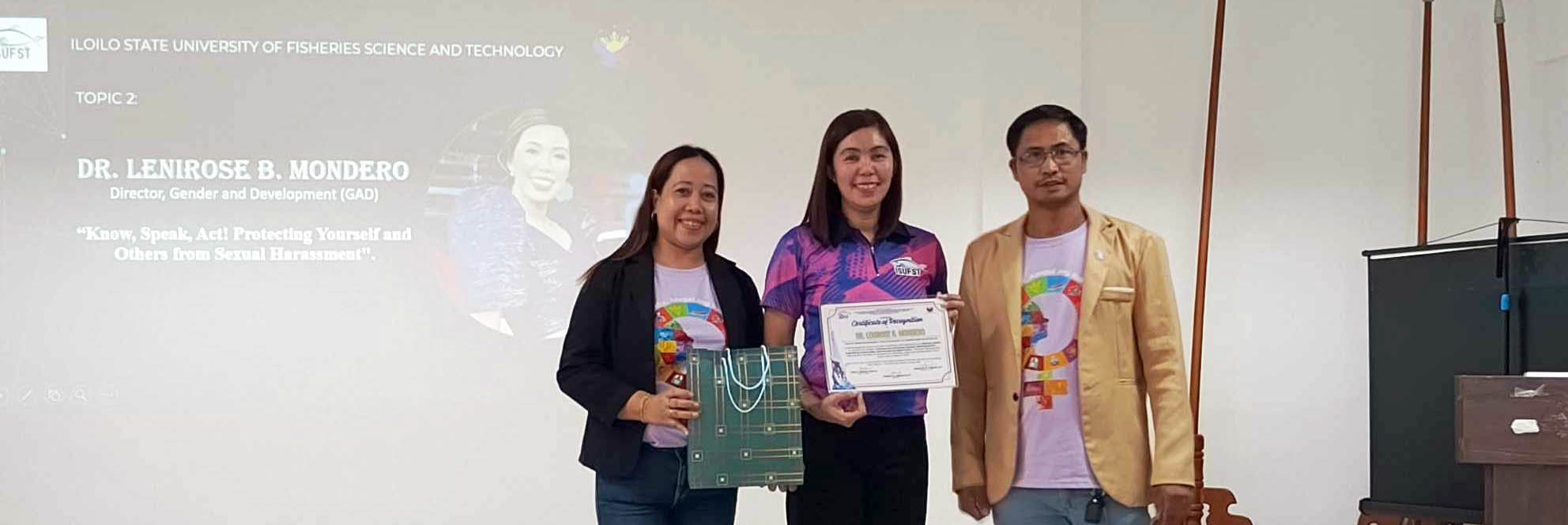
Main Poblacion Site, ISUFST – March 7, 2025 – The GAD Director delivered a lecture on sexual harassment to BSIT IV students of ISUFST – Main Poblacion Site. The lecture focused on understanding boundaries, recognizing inappropriate behavior, and promoting safe, inclusive environments. Education is key to prevention and open discussions empower individuals to stand up against harassment, support victims, and create positive change. Together, we can build a society where everyone feels safe, valued and respected.

ISUFST Celebrating National Women’s Month

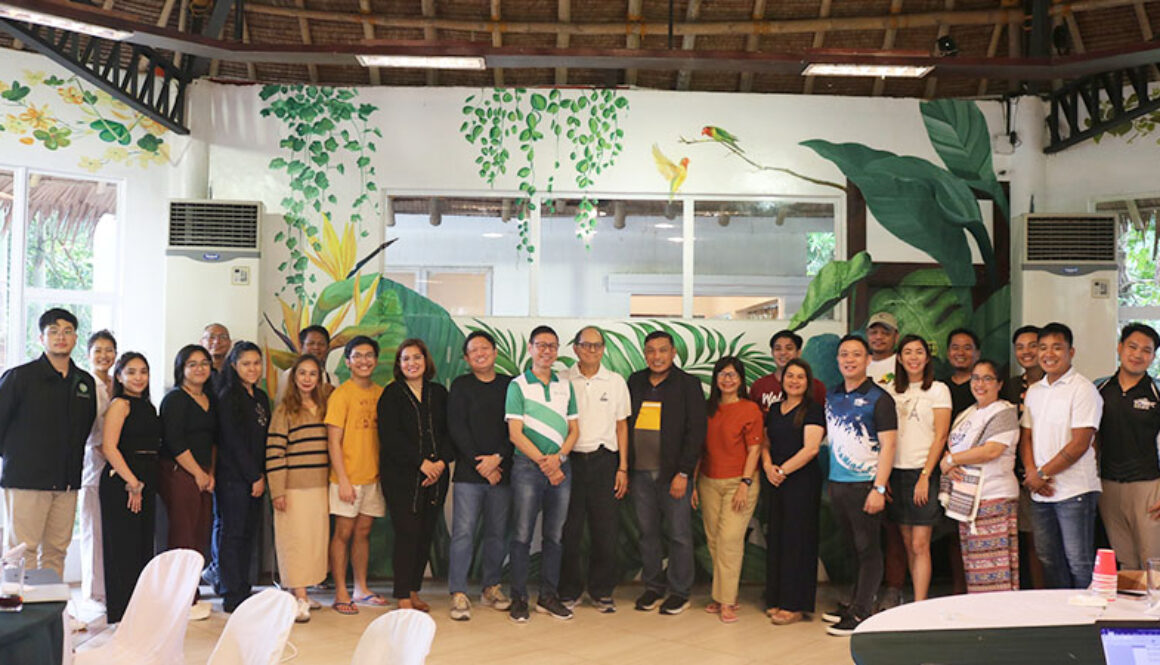
ISUFST and DLSU wrap up SDG Policy Workshop with Future Policy Forum

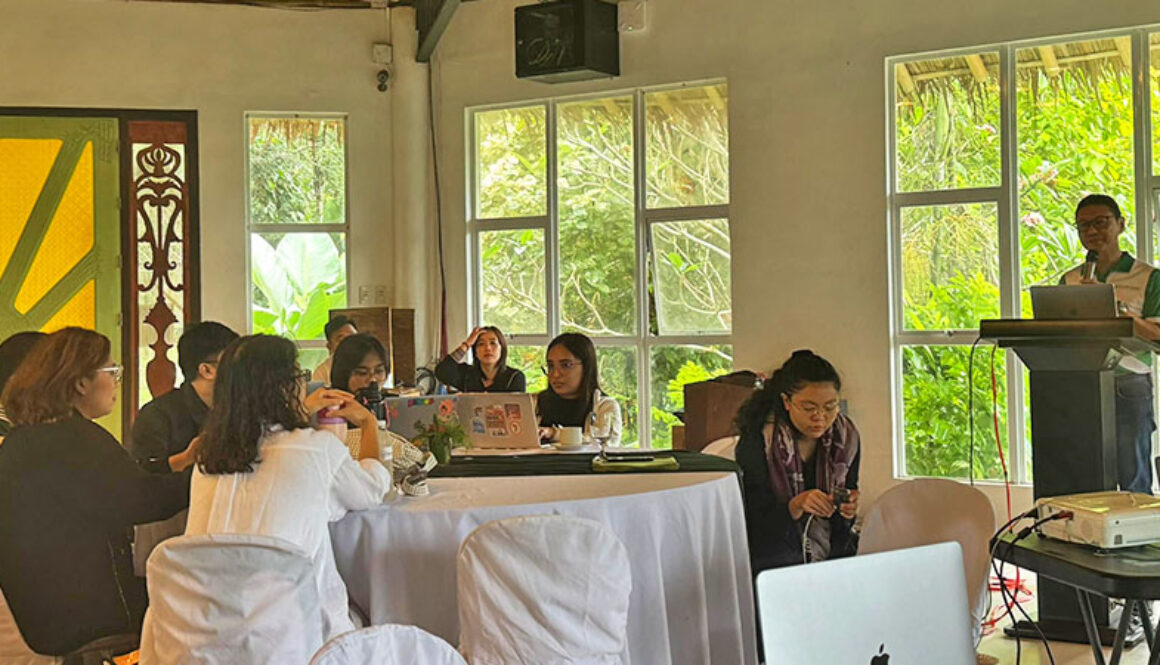
ISUFST and DLSU Explore Inclusive SDG-Based Local Laws on Day 2










